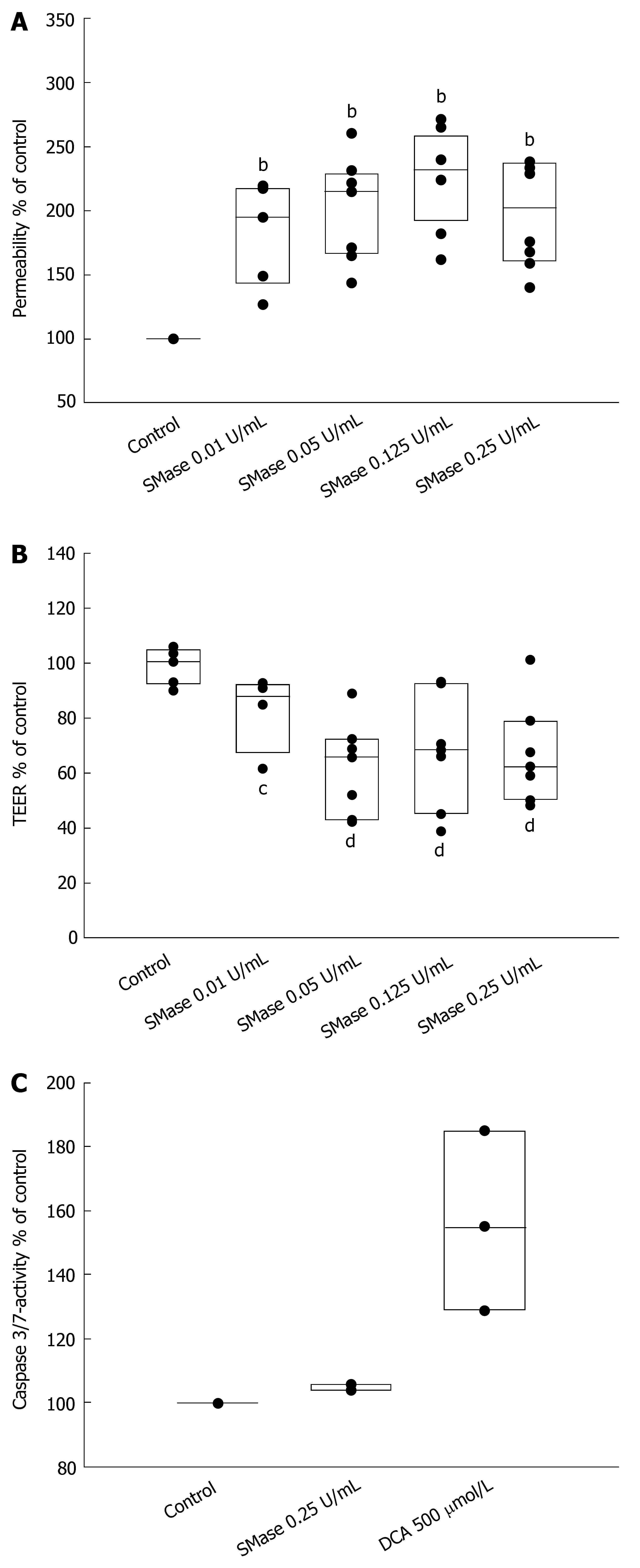Copyright
©2007 Baishideng Publishing Group Inc.
World J Gastroenterol. Oct 21, 2007; 13(39): 5217-5225
Published online Oct 21, 2007. doi: 10.3748/wjg.v13.i39.5217
Published online Oct 21, 2007. doi: 10.3748/wjg.v13.i39.5217
Figure 1 Exogenous sphingomyelinase increases permeability of Caco-2 epithelial monolayers.
A: Caco-2 monolayers were incubated with different concentrations of exogenous SMase. bP < 0.01 between control and treated samples; B: Transepithelial electrical resistance (TEER) was measured across the cell monolayers 4 h after treatment of the monolayers with exogenous SMase. The data were compared with TEER before treatment and are expressed as % of untreated, cP < 0.05, dP < 0.01; C: Epithelial apoptosis was monitored 6 h after incubation with 0.25 U/mL SMase by measurement of caspase-3/7-activity with colorimetric assays. As a positive control, deoxycholic acid (DCA) was used for 1 h.
- Citation: Bock J, Liebisch G, Schweimer J, Schmitz G, Rogler G. Exogenous sphingomyelinase causes impaired intestinal epithelial barrier function. World J Gastroenterol 2007; 13(39): 5217-5225
- URL: https://www.wjgnet.com/1007-9327/full/v13/i39/5217.htm
- DOI: https://dx.doi.org/10.3748/wjg.v13.i39.5217









